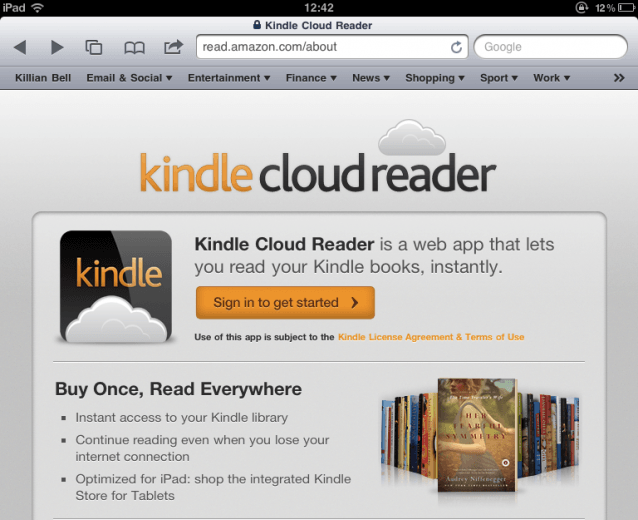Amazon’s upcoming Kindle tablet may have cracked one of the toughest nuts facing companies hoping to compete with Apple’s lean, mean iPad supply machine: cost. The Internet retailer may rely heavily on the cloud to store ebooks, as well as stream music and video, weekend reports suggest.
The $250 Amazon Kindle device is expected to be released later this month, providing consumers access to the firm’s Cloud Player and Prime Video Services. Now it appears Kindle Tablet users will be able to store documents, ebooks, music and video on the cloud, rather than in the device’s small amount (a rumored 6GB) of flash memory. Amazon recently referred to “Pdocs_Archival_Support” as well as “Prime ebooks” via the company’s “Manage Your Kindle” page, according to The Digital Reader.
The only question is whether Amazon can obtain for its tablet the same free cellular service found in its Kindle 3G ereader. The strong cloud presence could set the Kindle tablet apart from the many iPad competitors, but could also be the weakest link in Amazon’s strategy to upset Apple’s current dominance.



3 responses to “Amazon’s Kindle Tablet Will Compete With iPad By Relying Heavily On The Cloud”
Current Kindles use hardly any data at all, which is how they get away with free service.
A real tablet OS means heavy data use. I don’t see how they could arrange a free data service on that unless it is ad supported or some such.
no, the “only question” is how much longer we have to listen to all this stupid hype about the Amazon tab’s competition with the iPad. which it clearly in fact does not. it certainly does compete with the Nook Color (and a new version coming soon), and every other 7″ Android tab, all of which are gravitating to the < $300 price level finally*. its forked version of Android 2.x certainly competes with all the Android tabs running Froyo 2.2 (not the Android tablet version). its app store and cloud services certainly do compete directly with Google’s versions of the same things for the Android user market. and last but not least, its ‘shopping appliance’ features (assuming it has a bar code scanner) certainly would compete with every brick-and-mortar retail store everywhere.
but that’s it. these are all niche market segments, not the iPad market.
*even the almost-year old 7″ Galaxy tab that was launched with 2 million shipped @ $600 can now be bought – on Amazon of course – for $280. still plenty of stock left after 10 months.